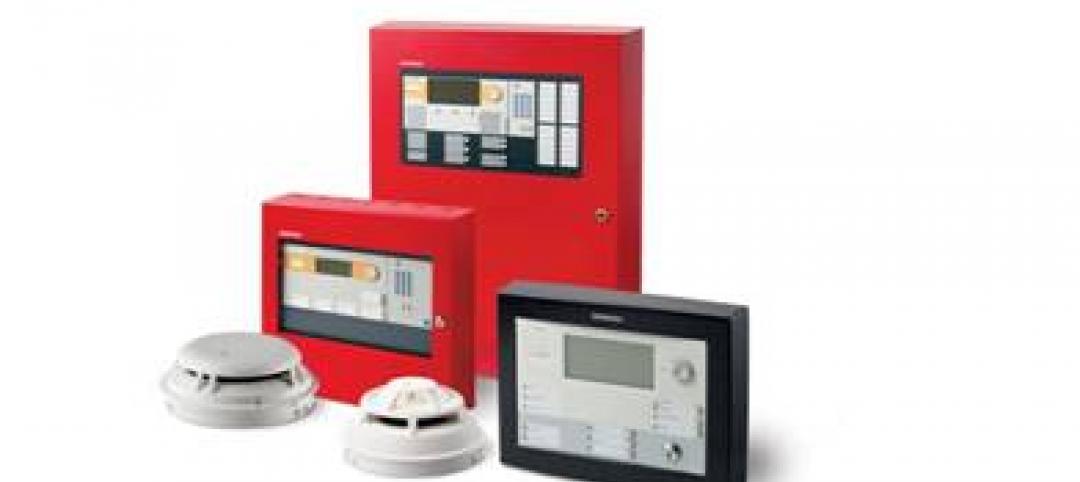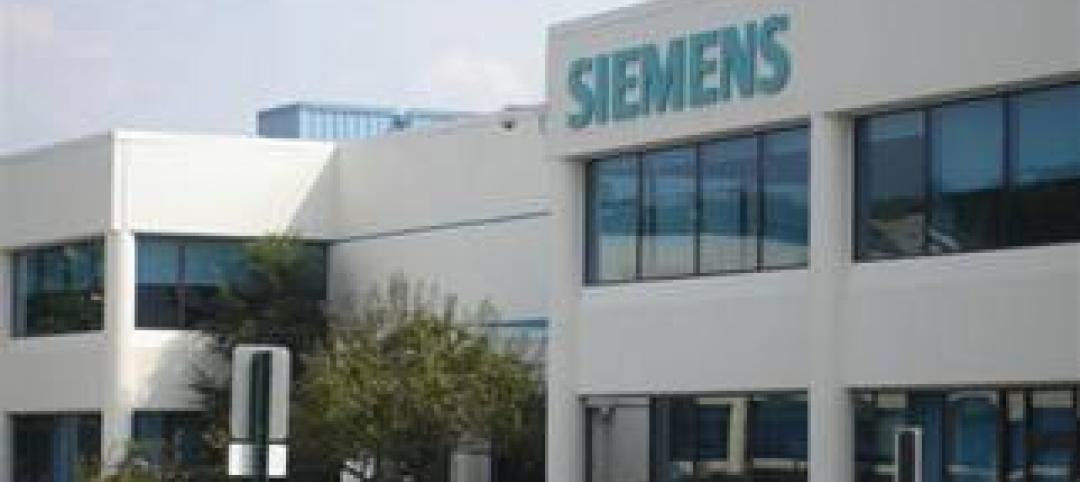Building Teams for apartments, senior living, and other multifamily residential projects may be seeing gray this year, at least in kitchens and bathrooms. Gray color schemes for both types of spaces have grown dramatically in popularity, according to a new National Kitchen & Bath Association Top 10 trends report. Used currently in 55% of kitchens and 56% of bathrooms, gray conveys a sense of chic sophistication, according to the NKBA. White, off-white, beige, and bone also remain very popular, and sepia tones are on the rise.
Transitional-style kitchens and baths—defined as a "seamless blend of traditional and contemporary"—have surpassed traditional styles, which reigned until 2012. Quartz finishes are another "clear trendsetter" for 2013, according to NKBA survey respondents, consisting of ~300 member designers in the U.S. and Canada. Though quartz saw a slight popularity decline in 2012, it is now a close second to perennial favorite granite.
Additional top trends for kitchens include white-painted cabinetry, glass backsplashes, LED lighting, touch-activated faucets, and satin-nickel finishes. Bathroom trends include an increased use of ceramic/porcelain tiles and undermount sinks.
Here's a recap of the top 10 kitchen and bath design trends for 2013 (download the full report at http://www.nkba.org/PressRelease/2013_NKBA_Kitchen_and_Bath_Style_Report.pdf):
KITCHENS & BATHROOMS
1. Shades of Gray
In kitchens, shades of gray have noticeably jumped in use over the past three years. There was a significant increase from 9% of kitchens in 2010 to a remarkable 55% in the final three months of 2012. Similar to kitchens, grays in bathroom remodels have risen from 12% to 56% since 2010.
Whites and off-whites remain the top color schemes of both kitchens and bathrooms, used in 73% and 71%, respectively, an increase of 6 percentage points in both categories over the past year. Beiges and bones remain the second most popular color scheme in both rooms, followed by grays and then browns. Browns are slightly in decline in bathrooms, falling from 39% in 2012 to 35% this year, but sepia tones rose from 11% to 17% in kitchens and 11% to 18% in bathrooms.
2. Rise of Quartz
Quartz was the second most popular counter-surface material used in kitchens and baths last year. This year, it has significantly narrowed the gap with granite, increasing from 69% to 80% in kitchens and from 53% to 65% in bathrooms. Meanwhile, granite held steady in 2013, with 87% usage in kitchens and 71% in bathrooms.
Identified as the key trend for 2012, the popularity of solid surfaces in kitchens continues to rise, growing from 11% in 2010 to 35% in 2013. Marble still remains a popular bathroom vanity-top material, only moderately dipping in popularity from 46% in 2010 to 39% this year.
3. Trending Transitional Styles
In 2012, the popularity of transitional style — a seamless blend of traditional and contemporary — exceeded that of its traditional counterpart, which had been the clear topper in 2010 and 2011. In our latest survey, transition expanded its lead in the kitchen, with usage growing from 59% to 69%, Likewise, transitional styles in the bathroom are still positioned #1, currently used by 61% of NKBA-member designers.
As a consequence, traditional styles sit in second place in both rooms, their popularity holding steady at 60% in kitchens and 58% in bathrooms. Contemporary designs secured a close third in the most recent poll, maintaining a steady 52% usage in kitchens and increasing slightly from 53% to 57% in bathrooms.
KITCHENS ONLY
4. White Painted Cabinetry
Among painted cabinetry, white has stayed on top of the chart since last year. Given its remarkable, upward climb over the past three years, it’s clearly no fad. The popularity of white-painted cabinetry jumped from 47% to 59% in 2012 and further increased to 67% this year.
Use of light, medium and natural finishes has remained more or less consistent over the past year. Light finishes are currently used by 30% of respondents, medium finishes by 54%, and dark finishes by 55%. Use of glazed finishes, which held at 44% in 2011 and 2012, increased by four percentage points this year.
5. Glass Backsplash
The preference for glass splashes has grown dramatically over the past three years: from 42% in 2010 to 64% this year. At the same time, while natural stone tile showed consistent growth during 2011 and 2012, usage dropped from 60% to 55% in the latest survey. Ceramic or porcelain tiles held its top position for the third consecutive year, but overall usage fell by 11 percentage points between 2010 (88%) and now (77%).
6. LED Lighting
Energy-efficient lighting is widely used by member designers in both the United States and Canada. As consumer awareness of energy efficiency has risen, it comes as no surprise that light-emitting diode, or LED, lighting is being specified by a higher percentage of designers, increasing from 70% to 77% over the past year. The significant uptick from 50% in 2010 indicates that this trend has serious staying power.
Meanwhile, there has been no significant change in the use of compact fluorescent lighting (CFL) and incandescent bulbs, with current usage at 26% and 41%, respectively.
7. Touch-activated Faucets
Growing in popularity are touch-activated faucets, specified by 32% of member designers, versus only 20% of designers in 2011 and 2012. Pull-out faucets are still in the top position, as they have been since 2010, with usage rising from 88% in 2010 to 94% this year. Pot filler faucets grab the second spot this year, gaining five percentage points over the past year to 33%.
8. Satin Nickel on the Rise
When it comes to faucet finishes in kitchens, satin nickel has been on the top since 2011, its usage increasing from 42% in 2010 to 60% this year. Bronze or oil-rubbed bronze finishes are also being specified more often, growing from 41% to 50% in the past year. The increased popularity of these three finishes most likely comes at the expense of polished nickel and polished chrome. The latter, which had seen a rise in usage in 2012, dipped from 52% to 47% in the latest survey; polished nickel dropped from 25% to 20%.
BATHROOMS ONLY
9. Ceramic/Porcelain Tiles
Ceramic or porcelain tile flooring has been in slight decline over the past two years, but it remains the most popular of all materials, specified by 83% of the survey participants this year — down from 93% in 2011. Natural stone tiles have also declined since 2011 dropping from 77% to 59% in 2012, and to 57% this year. However, they have been the second most popular type of flooring used since 2011.
10. Undermount sink
Undermounts are in slight decline this year, dropping from 94% in 2012 to 87%. But here again, they remain the most specified type of lavoratory sink — not just in the latest poll, but over the past 3 years. Integrated sink/tops have seen modest growth, increasing from 35% in 2012 to 41% currently.
For the full report, visit: http://www.nkba.org/PressRelease/2013_NKBA_Kitchen_and_Bath_Style_Report.pdf.
Related Stories
| Feb 24, 2012
Skanska hires Tingle as senior VP and national director for its Sports Center of Excellence
Tingle has worked in the architecture and construction industries for more than 30 years, and for the last 23 years, he has focused primarily on large-scale sports construction projects
| Feb 23, 2012
Federal budget cuts put major building projects on hold
A plan to build the National Bio and Agro-Defense Facility in Kansas is among several major building projects in jeopardy after the Obama administration’s 2013 budget was unveiled. The budget would cut all construction spending for the facility.
| Feb 23, 2012
Regulators investigating construction accident at World Trade Center
The New York Port Authority and the city’s fire and building departments are investigating an accident at the World Trade Center construction site in lower Manhattan after a crane dropped steel beams that fell about 40 stories onto the truck that delivered them.
| Feb 22, 2012
ACI BIM manual for cast-in-place concrete in development
The improved communication, coordination, and collaboration afforded by BIM implementation have already been shown to save time and money in projects.
| Feb 22, 2012
Siemens earns LEED certification for Maryland office
The Beltsville facility, which also earned the ENERGY STAR Label for energy performance, implemented a range of energy efficiency, water conservation and sustainable operations measures as part of the certification process.
| Feb 22, 2012
CISCO recognizes Gilbane for quality construction, design, and safety
The project employed more than 2,000 tradespeople for a total of 2.1 million hours worked – all without a single lost-time accident.
| Feb 22, 2012
Perkins Eastman expands portfolio in China and Vietnam
Recent awards, project progress signal ongoing commitment to region.
| Feb 22, 2012
Suffolk awarded Boston post office renovation project
Renovation of art deco landmark will add 21,000 square feet of retail and 110 new parking spaces.
| Feb 21, 2012
Top 10 trends in commercial lenders’ environmental due diligence
EDR offers free webinar on February 22, 2012 at 1 p.m.

















